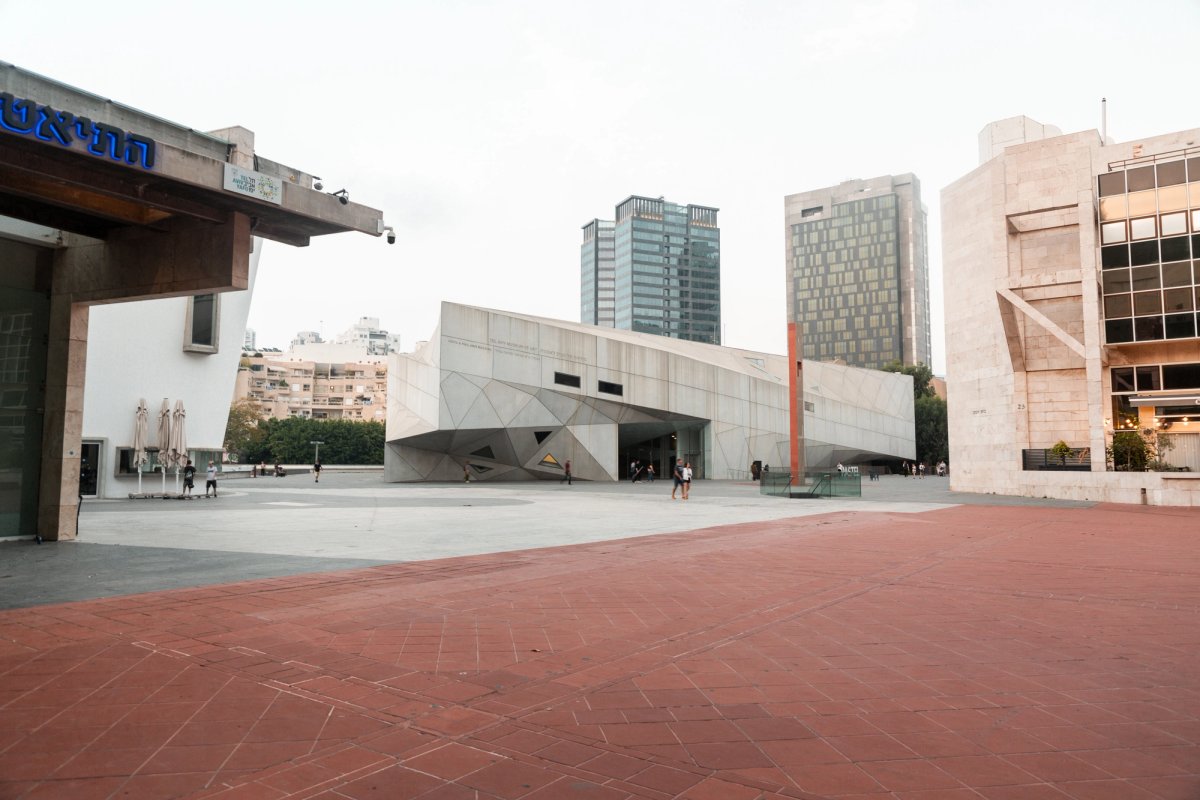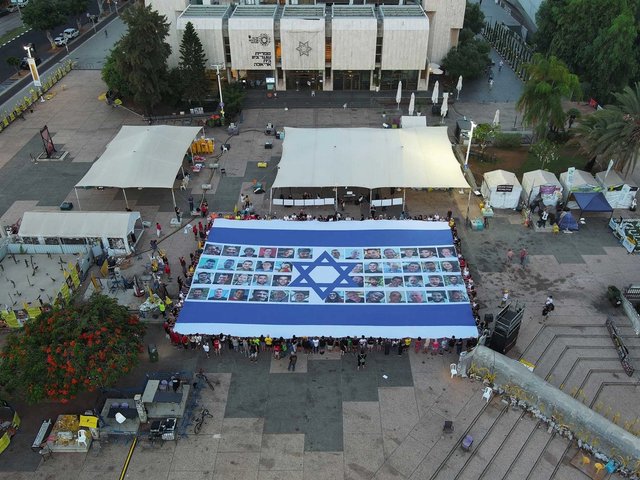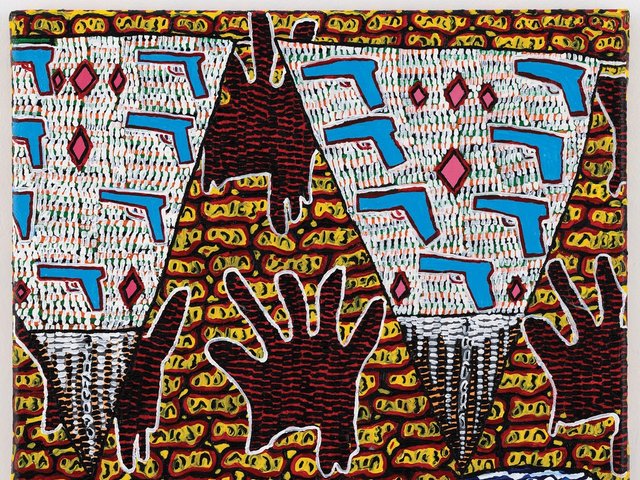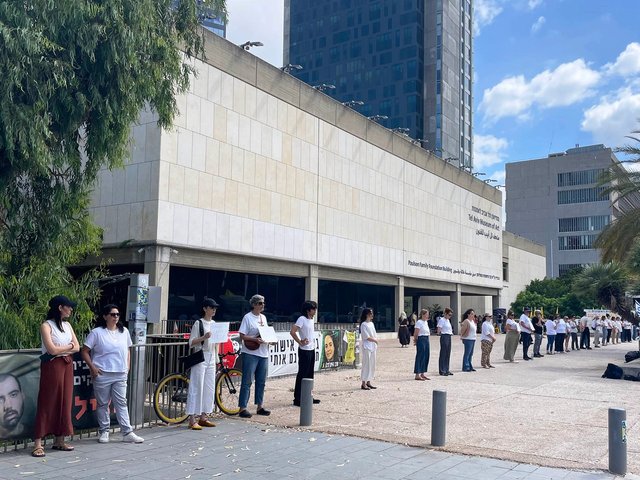More than 50 artists and cultural figures, many of them based in Israel, have signed a letter urging the American artist Judy Chicago and the founding member of Pussy Riot, Nadya Tolakonnikova, to cancel an exhibition of their work at the Tel Aviv Museum of Art.
The show, which opened last week, features a collaborative digital quilt which responds to the titular question: what if women ruled the world? Against the backdrop of the ongoing war, and the United Nations commission’s recent finding that Israel has committed genocide in Gaza, the letter calls on the pair not to be “complicit” and not to “artwash the genocide”.
The letter, seen by The Art Newspaper, reads in part: “We are writing to you, as artists whose work is deeply committed to social justice and feminism [who] seek to fight power and critique forms of oppression. We believe that Israel’s actions are in violation of the vision of the world that you promote through your art, and ask that you do not use your names and reputations to support those actions.
“...We strongly believe that as Israel annihilates not only Gaza’s population and its ability to sustain life, but also its history, culture, and heritage, cooperation with an Israeli establishment by international artists projects a false sense of normalcy—effectively turning a blind eye to the genocide Israel has been perpetrating in Gaza for almost two years.”
Tolakonnikova, a musician and conceptual artist who was imprisoned in her native Russia throughout 2012, told The Art Newspaper that she previously helped to launch What If women ruled the world?, but is not involved in the ongoing project. The artist stressed that she is not currently involved in any decisions connected to the work or where it is shown. Chicago, who is known for her trailblazing 1970s installation The Dinner Party, declined to comment.
According to the Tel Aviv Museum of Art’s website, What if women ruled the world? sparks an intergenerational dialogue between Chicago’s feminism, rooted in awareness-raising and communal action, and Tolokonnikova’s direct, defiant, global activism. “Their collaboration affirms that feminism is not a monolithic idea but a dynamic field of voices, thoughts, and shared experiences,” a description of the work concludes.
The letter, however, states: “We question the nature of such an exhibition that claims to speak the language of feminism while ignoring the fact that Israel violates women’s rights every day. According to UN Women’s analysis from 19 May 2025, more than 28,000 women and girls have been killed in Gaza since October 2023… To speak about feminism within an institution of a state that perpetrates such atrocities while ignoring them is hypocrisy.”
Signatories of the letter include the Toronto-based painter Elena Chermoshniuk, the Tel Aviv-based musician Michal Sapir and the Jaffa-based artist and educator Rachel Hagigi. Sapir tells The Art Newspaper: “The least we as artists can do is voice a clear objection to what is going on, and not help Israel normalise its actions by projecting a false liberal façade.”
A spokesperson for the museum confirmed that What if women ruled the world? is presented in partnership with the Nassima Landau Foundation and the art and technology company, DMINTI, both of which were contacted for comment. The spokesperson continued: “[The exhibition] should not be read as an endorsement of any political position by the artist or contributors. In showing this participatory quilt, the museum aims to provide space for reflection and respectful dialogue about a future shaped by empathy, collaboration, and responsibility.
“...Created three years ago, it has since travelled and been exhibited in cultural and art institutions worldwide. The work is on loan for display through DMINTI, presented with the artists' permission, but without their direct involvement.”
Tania Coen-Uzzielli, the director of the Tel Aviv Museum of Art, says: “We too are horrified by the devastation and pain in Gaza and we use our platform to call for the end of the war and shine a light on its toll. However, we at the Tel Aviv Museum of Art reject the notion that cancelling exhibitions serves as a meaningful response to the destruction around us.
“This cultural boycott will not stop the war, nor will it alleviate the profound suffering in Gaza. What it will do is only silence artists, annihilate critique, and play into the hands of those who seek to control culture….To cancel this project now would not be an act of solidarity, but of surrender.”






